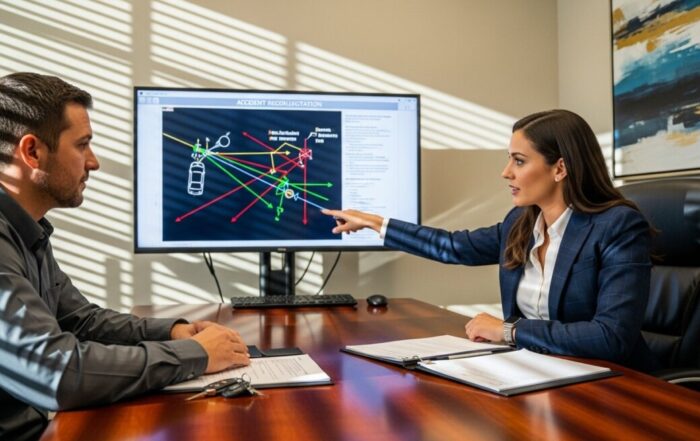Free Legal Aid Nearby: Get Assistance Today
Ready to resolve your legal concerns? Get professional help now with personalized support, Or Call 833-349-4659 for immediate assistance.
Legal aid is a service that provides free or low-cost legal help to people who cannot afford a lawyer. It ensures everyone has access to justice, no matter their financial situation. Many people face legal problems but don’t know where to turn. Legal aid organizations can help with issues like housing, family law, and healthcare decisions.
In this article, we’ll explore:
-
What legal aid is and who qualifies for it
-
How legal aid can help with a medical power of attorney
-
Why you might need a tenant rights lawyer
-
Where to find legal aid services
By the end, you’ll have a clear understanding of how legal aid can support you in difficult situations.
What Is Legal Aid and Who Qualifies for It?
Legal aid is a system designed to help low-income individuals get legal representation. Many people struggle with legal issues but can’t afford expensive lawyers. Legal aid organizations fill this gap by offering free or low-cost services.
Here’s how legal aid works:
-
Income-Based Eligibility – Most legal aid programs have income limits. If you earn below a certain amount, you may qualify for free help. Some organizations also offer sliding-scale fees based on what you can afford.
-
Types of Cases Covered – Legal aid typically handles civil (non-criminal) cases. This includes eviction defense, domestic violence protection, and benefits disputes. Criminal cases are usually handled by public defenders, not legal aid.
-
Non-Profit and Government-Funded – Many legal aid organizations are non-profits funded by the government or private donations. They have lawyers and paralegals who specialize in helping vulnerable populations.
-
Pro Bono Services – Some private lawyers volunteer their time (pro bono) to help those in need. Legal aid programs often connect clients with these attorneys.
If you’re struggling with a legal issue and can’t afford a lawyer, legal aid may be the solution.
How Legal Aid Can Help with a Medical Power of Attorney
A medical power of attorney (MPOA) is a legal document that lets you choose someone to make healthcare decisions for you if you’re unable to do so. This is important for elderly individuals or those with serious illnesses.
Here’s how legal aid can assist with a medical power of attorney:
-
Drafting the Document – Legal aid lawyers can help you create a legally binding MPOA. They’ll ensure it meets state requirements and clearly states your wishes.
-
Explaining Your Rights – Many people don’t understand how an MPOA works. Legal aid can explain your options, such as choosing a trusted family member or friend as your agent.
-
Resolving Disputes – If family members disagree about your medical care, legal aid can help resolve conflicts. They may mediate discussions or represent you in court if needed.
-
Updating Documents – If your situation changes (like a divorce or new diagnosis), legal aid can help update your MPOA to reflect your current wishes.
Without legal help, some people sign forms they don’t fully understand. Legal aid ensures your medical power of attorney protects your rights.
Ready to resolve your legal concerns? Get professional help now with personalized support, Or Call 833-349-4659 for immediate assistance.
Why You Might Need a Tenant Rights Lawyer
Renting a home comes with legal challenges. Landlords sometimes violate tenant rights, leading to unfair evictions, unsafe living conditions, or illegal rent increases. A tenant rights lawyer can help you fight back.
Here’s when you might need one:
-
Wrongful Eviction – If your landlord tries to evict you without proper notice or legal reason, a tenant rights lawyer can defend you in court.
-
Unsafe Living Conditions – Landlords must provide safe, habitable housing. If yours refuses to fix mold, broken heating, or pest infestations, a lawyer can force repairs or help you break the lease.
-
Security Deposit Disputes – Many landlords wrongfully withhold security deposits. A lawyer can help you recover what you’re owed.
-
Discrimination – If a landlord denies you housing based on race, disability, or family status, a tenant rights lawyer can file a discrimination complaint.
Legal aid organizations often have housing lawyers who specialize in tenant rights. They can guide you through negotiations or represent you in court.
Read Also: How to Find Social Security Disability Lawyers Near Me?
Where to Find Legal Aid Services
If you need legal help but can’t afford a lawyer, here’s where to look:
-
Local Legal Aid Offices – Most cities have non-profit legal aid organizations. Search online for “[your city] legal aid” to find nearby services.
-
Law School Clinics – Many law schools run free legal clinics where law students (supervised by professors) help with cases.
-
Bar Association Referrals – State and local bar associations often have referral programs connecting low-income individuals with affordable lawyers.
-
Online Resources – Websites like LawHelp.org provide free legal information and direct you to local aid programs.
-
Community Organizations – Non-profits focused on housing, domestic violence, or immigrant rights sometimes offer legal help or referrals.
Before applying, gather documents like pay stubs, court notices, or lease agreements. This helps legal aid determine if you qualify.
Final Thoughts
Legal aid is a lifeline for people who can’t afford legal representation. Whether you need help with a medical power of attorney, a tenant rights dispute, or another issue, free or low-cost help is available.
If you’re facing a legal problem, don’t wait—reach out to a legal aid organization today. They can provide the guidance and representation you need to protect your rights.
Remember, everyone deserves access to justice, no matter their income. Legal aid makes that possible.
Don’t let legal complexities hold you back. Start your free consultation here or call 833-349-4659 now.
You can also visit LegalCaseReview to find the best Lawyer.
FAQs
1. What is legal aid?
Legal aid is a service that provides free or low-cost legal assistance to individuals who cannot afford to hire a private attorney. It helps people with civil matters like housing, family law, employment, and public benefits.
2. Who qualifies for legal aid?
Eligibility for legal aid usually depends on income level, family size, and the type of legal issue. Most programs serve low-income individuals and families, but some also assist seniors, veterans, and people with disabilities.
3. What types of legal issues are covered by legal aid?
Legal aid often covers civil legal matters such as eviction, divorce, child custody, domestic violence, unemployment benefits, immigration issues, and consumer rights. Criminal defense is usually handled by public defenders, not legal aid.
4. How can I apply for legal aid?
You can apply by contacting your local legal aid office, visiting their website, or calling a legal help hotline. You’ll usually need to provide information about your income, household, and legal issue.
5. Is legal aid completely free?
In most cases, yes. Legal aid services are free for those who qualify. However, in some situations, clients might be asked to pay court filing fees or other small costs, unless waived.
6. Can legal aid help with immigration cases?
Yes, many legal aid organizations offer assistance with immigration matters such as asylum, green cards, DACA, and deportation defense, especially for low-income immigrants.




